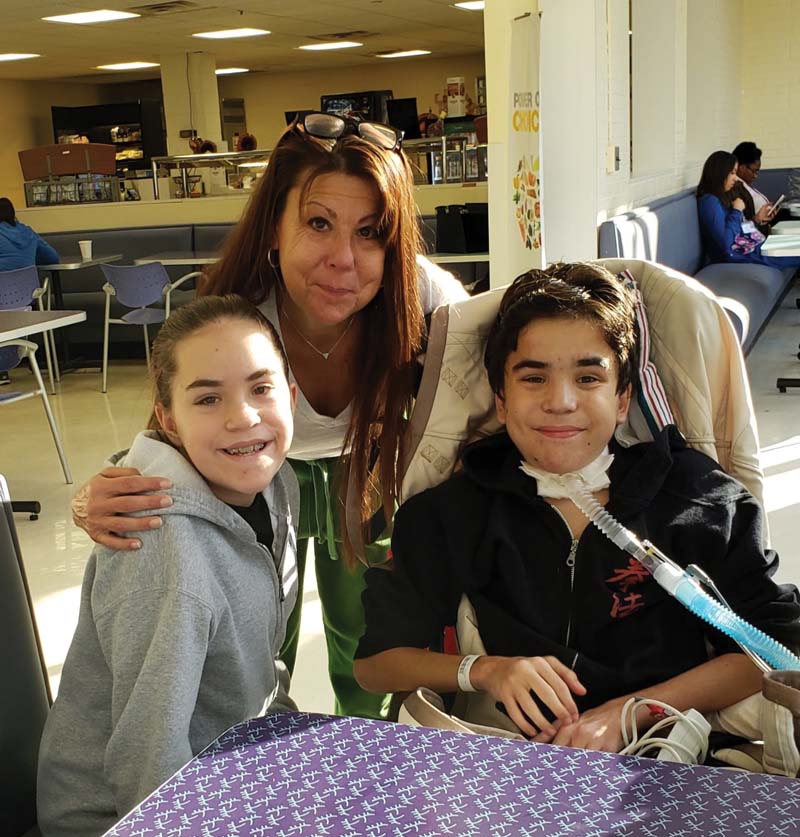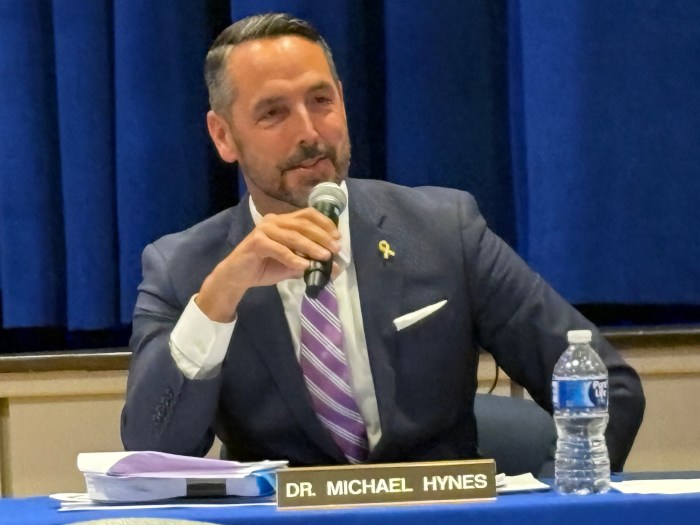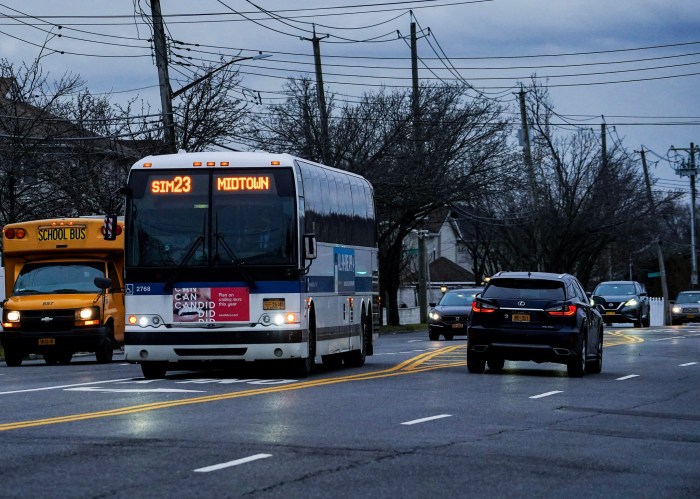
Terri Woodruff was sitting in her son Alec’s room at Blythedale Children’s Hospital in Westchester exactly one year ago when she received the biggest surprise of all.
“That particular day is marked in my history as the happiest day of my life thus far,” Terri said.
Just weeks before, 16-year-old Alec woke up in the middle of the night. He told his mother that he felt his head was about to fall of. This was not an exaggeration.
He had spent a handful of days at home with a cough and a fever, and it wasn’t getting better. The cough started on Oct. 4, 2018. Instead, it suddenly got worse. They went to NYU Winthrop Hospital in Mineola on Oct. 10, where the emergency room doctors found the cause.
“It all started out as a cough,” Alec said. “The cough was way off from what a typical cough would be.”
Alec was diagnosed with Acute Flaccid Myelitis (AFM), a modern-day version of polio. AFM affects gray matter within the spinal cord, and is often associated with “a mild respiratory illness or fever consistent with a viral infection before they developed AFM,” according to the Centers for Disease Control and Prevention. There is no specific reason as to why the disease develops and preventative action is not known.
The doctors had to perform a tracheotomy to assist his breathing as paralysis kicked in. The paralysis went into effect, pausing movement throughout the left side of his body, similar to polio. However, after days of uncertainty at Winthrop, the Woodruffs decided to move Alec to NYU Langone.

(Photos courtesy of Terri Woodruff)
“The transport team said I would’ve never made the ride because I was still on the BiPAP (positive pressure ventilator),” Alec explained. “They said I would die in the ambulance ride. But they put a trach in and I was there for 27 days. About 14 days in, they told my mom they couldn’t do anything for me medically.”
Doctors administered a hefty combination of steroids to prevent the disease from overtaking his entire body. He went into complete respiratory failure, having to be 100 percent dependent on a ventilator at one point.
But there was light at the end of the tunnel. Alec, a first degree black belt, was determined to recover, even though doctors said he would be paralyzed for the rest of his life.
“We were told that Alec would never walk again and that if he ever raised his hand and waved to me I’d be lucky,” Terri said. “He was at the point there was nothing more that could be done for him.”
When Terri moved him to the rehabilitation center, Alec’s motivation set in. His charismatic attitude impressed the nurses and the physical therapy staff.
First, Alec had to lift himself up. Challenge accepted.
“They were trying to get me to sit upright without needing support,” he said. “That was really the end goal of my physical therapy.”
But something inside of Alec clicked on Dec. 13, 2018. It was unlike anything the physical therapist could imagine.
“We were able to get me to sit up on a mat without needing support,” Alec said. “If we could do that, I asked if we can try to stand up. At first, my therapist looked at me and thought I was crazy. She liked my attitude and I was able to stand up. My upper body definitely got the worst of the paralysis, so my legs were a lot better. After that, I never stopped walking.”

Then, they decided to show Terri that her son, who was told days before by doctors that he had no chance at walking, had defied expectations. So Alec got out of the wheelchair with assistance from his physical therapist and walked into his room, where Terri was waiting.
In all, Alec spent about 120 days at Blythedale, with his stay extended a bit as he relearned how to walk at a steady pace. It would be 152 days after entering Winthrop to begin this journey that Alec could walk into his Levittown home under his own power once again.
“For me to live through this gave me a whole new outlook on life and it gave me a whole new appreciation for things other people may take for granted, like walking, talking and breathing on your own,” he said.
This September, Alec returned to Division Avenue High School. However, his life is anything other than ordinary.
Alec suffers from critical myopathy, neuropathy, hydrocephalus, atrophy, a major spine issue, poorly functioning lungs and is still partially paralyzed in the neck, shoulder and elbow area on the left side. But he’s just glad to be back in school.
“The fact that I was able to bounce back when every single odd was against me,” Alec explained. “My mom never left me and that was a crucial part.”
Maybe, he’ll be able to show off his black belt skills once again.































